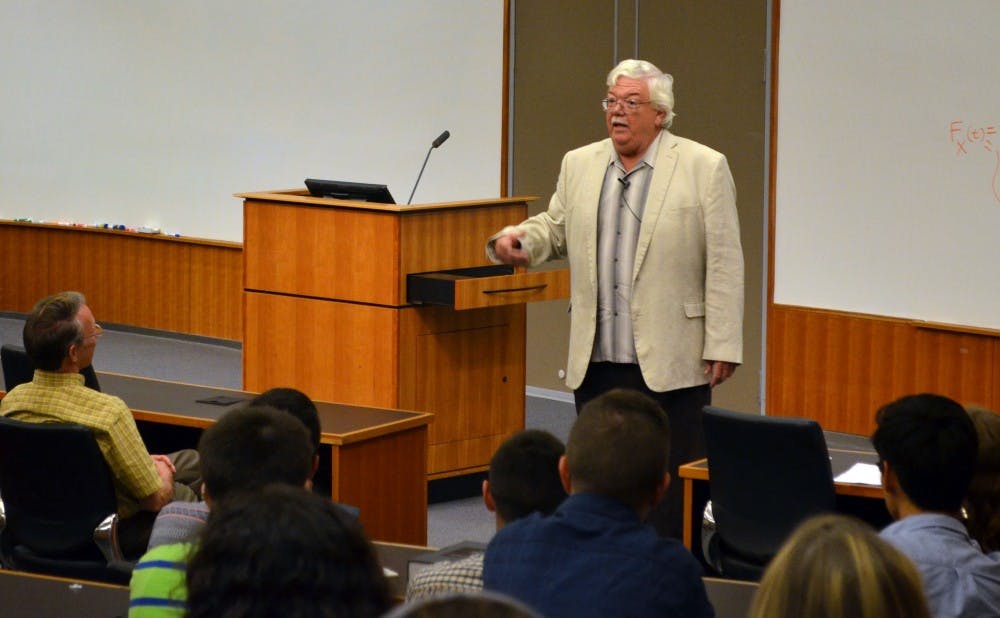Imagine a society, in the not too distant future, where sex is no longer the main method for reproduction. In the eyes of Stanford University law professor Hank Greely, director of the Stanford Center for Law Bioethics, that scenario will become a reality within this century.
At his "End of Sex" event Wednesday, Greely compared the future of conception to the society in the science fiction movie "GATTACA." Greely, often referred to as the godfather of the field between human genetics and biological sciences, foresees that the majority of births in developed countries will feature in-vitro fertilization and whole genome sequencing within the next 20 to 40 years.
"[The new method] is not going to be just more affordable or accessible, but it's going to be something new," Greely said. "[We are] introducing new frontiers through an old process."
He explained that rather than having women undergo numerous harmful procedures—where a small percentage receiving IVF are hospitalized—embryos can be generated directly through adult skin cells using induced pluripotent stem cells—a technology first reported in 2007.
"It would be trivially harmful, painless and much more reliable," Greely said.
The redefined process may bring broad implications. In addition to solving the problem of infertility, it may also work towards bringing a level of biological equality, he said. Through the innovation of IPSC, IVF can also help gay and lesbian couples have their own genetic children through producing gametes from their skin cells.
"The biological clock could even disappear," Greely said. "A 70-year-old woman could have a child as easily as a 5-year-old through the use of their skin cells."
Greely, however, noted that through whole genome sequencing, the level of knowledge that parents may be privy to would be limitless—from early, serious diseases such as Tay-sachs, to other early onset diseases such as Parkinsons, Huntingtons, and color-blindness, to cosmetic preferences, behavioral traits such as intelligence, personality and social comfort, to gender.
Jessica Ordax, a first-year Master's student in bioethics and science policy, said that the beauty of the talk was not that Greely was merely a good speaker, but that he addressed issues that one would not normally think about and in a way that one would not expect. The event was part of the Science and Society distinguished speaker series.
The socio-political and ethical issues brought along by a huge population participating in IVF and whole genome sequencing are of the concerns of many. Greely, however, reiterated that they would not be engaging in genetic engineering. Two parents, for example, could not conjure an eye color for their unborn child if the genetic traits do not belong to their original gene pool.
“You are limited by what you bring to the table, or the petri dish in this case,” Greely says. “You’re not going to get superman, you’re going to get slightly healthier kids."
Despite the many opinions on the ethical nature of IVF and whole genome sequencing, Greely believes that there is something fundamentally moral in it.
“We should do what we can to relieve human suffering. And one aspect of human suffering is that there are people who want to have babies who cannot. It doesn’t matter if it’s natural at that point or not,”Greely said. “So if it’s a question between human suffering on one hand and naturalness on the other hand, then that’s an easy one for me to answer.”
In an earlier version of this article, Hank Greely's position was misstated. Jessica Ordax's course of study was also misidentified. The Chronicle regrets the error.
Get The Chronicle straight to your inbox
Signup for our weekly newsletter. Cancel at any time.

